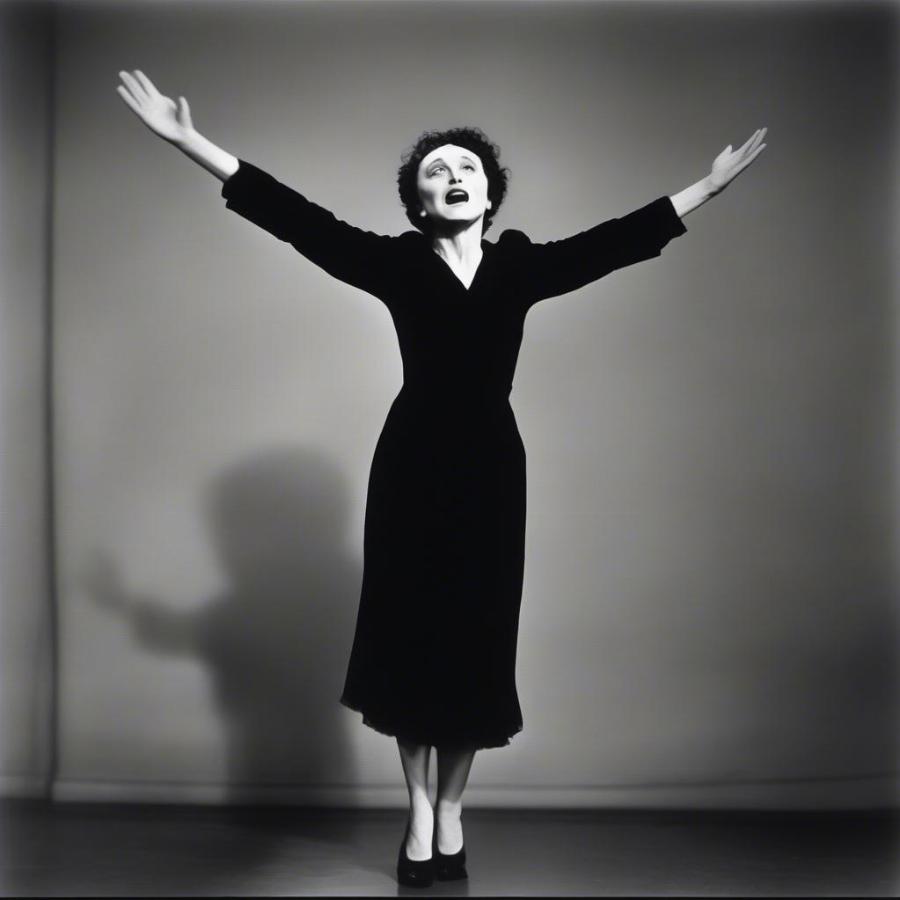Famous French Songs: Exploring the Timeless Legacy of Edith Piaf

Edith Piaf, the iconic French chanteuse, captivated audiences worldwide with her powerful vocals and emotional depth. Her famous French songs continue to resonate with listeners today, transcending generations and cultural boundaries. This article delves into the enduring legacy of Piaf, exploring her most celebrated works and the impact they’ve had on French music and culture. From “La Vie en Rose” to “Non, Je Ne Regrette Rien,” we’ll uncover the stories behind these famous French songs and examine what makes them so timeless.
The Little Sparrow’s Soaring Success: Edith Piaf and Her Famous French Songs
Edith Piaf, nicknamed “La Môme Piaf” (The Little Sparrow), rose from humble beginnings to become one of France’s most beloved performers. Her life, marked by hardship and triumph, heavily influenced her music, giving her famous French songs a raw authenticity that resonated deeply with audiences. Her powerful voice, combined with emotionally charged lyrics, conveyed a range of human experiences, from love and loss to resilience and hope. This section explores some of Piaf’s most famous French songs and the stories behind their creation.
La Vie en Rose: A Timeless Anthem of Love
Perhaps Piaf’s most recognizable work, “La Vie en Rose” (Life in Pink), paints a picture of love’s intoxicating embrace. Released in 1946, the song became an instant classic, capturing the post-war yearning for hope and happiness. Its simple yet profound lyrics, combined with Piaf’s emotive delivery, transformed it into a timeless anthem of love, celebrated globally. The song’s enduring popularity is a testament to its universal message and the evocative imagery it creates.

Non, Je Ne Regrette Rien: A Declaration of Defiance
“Non, Je Ne Regrette Rien” (No, I Regret Nothing), another of Piaf’s famous French songs, embodies a spirit of resilience and defiance. Written in 1956, the song’s powerful lyrics express a refusal to dwell on past regrets, choosing instead to embrace the present and future. Its message of unwavering strength resonated with audiences then and continues to inspire today. This anthem of self-affirmation has become synonymous with Piaf’s indomitable spirit.
What made Edith Piaf’s songs so popular? Piaf’s emotional delivery and the relatable themes explored in her famous French songs contributed to their enduring popularity. Her ability to connect with audiences on a deeply personal level, sharing her own vulnerabilities and triumphs through music, forged a powerful bond with her listeners.

Hymne à l’amour: A Testament to Unconditional Love
“Hymne à l’amour” (Hymn to Love) is a poignant ballad that showcases the depth and intensity of Piaf’s emotional range. The song’s lyrics express an unwavering devotion to love, even in the face of adversity and loss. This heartfelt declaration of unconditional love has touched the hearts of countless listeners, solidifying its place among Piaf’s most cherished and famous French songs. The song’s enduring popularity is a testament to the universal power of love and the emotional resonance of Piaf’s performance.
The Enduring Influence of Edith Piaf’s Famous French Songs
Piaf’s famous French songs have left an indelible mark on French music and culture. Her influence can be seen in the work of countless artists who have been inspired by her powerful vocals, emotional depth, and unwavering spirit. Her music continues to be celebrated in films, documentaries, and stage productions, ensuring that her legacy lives on for generations to come.

What are some other famous French songs by Edith Piaf? Besides the iconic songs mentioned above, other famous French songs by Edith Piaf include “Milord,” “Padam, Padam,” and “L’Accordéoniste.” These songs further showcase her versatility as an artist and her ability to connect with audiences through diverse musical styles and themes.
Jacques Dubois, a renowned music historian, states, “Piaf’s ability to convey raw emotion through her voice transcended language barriers. Her songs spoke to the human experience in a way that resonated with people from all walks of life.”
Conclusion: A Timeless Voice that Continues to Inspire
Edith Piaf’s famous French songs remain as powerful and evocative today as they were decades ago. Her ability to connect with audiences on a deeply emotional level, combined with her unique vocal style and captivating stage presence, solidified her status as a true icon of French music. From “La Vie en Rose” to “Non, Je Ne Regrette Rien,” her music continues to inspire and move listeners worldwide, reminding us of the enduring power of human emotion and the timeless beauty of French song. Explore the rich tapestry of Edith Piaf’s famous French songs and discover the magic of “La Môme Piaf” for yourself.

FAQ: Frequently Asked Questions about Edith Piaf and Her Famous French Songs
- What is Edith Piaf’s real name? Edith Piaf’s real name was Édith Giovanna Gassion.
- When was Edith Piaf born? Edith Piaf was born on December 19, 1915.
- Where was Edith Piaf born? Edith Piaf was born in Belleville, Paris, France.
- When did Edith Piaf die? Edith Piaf died on October 10, 1963.
- What is Edith Piaf’s most famous song? “La Vie en Rose” is widely considered Edith Piaf’s most famous song.
- What does “La Môme Piaf” mean? “La Môme Piaf” means “The Little Sparrow.”
- What genre of music did Edith Piaf sing? Edith Piaf primarily sang chanson française, a genre of French popular music.
- What is the meaning of “Non, Je Ne Regrette Rien”? “Non, Je Ne Regrette Rien” means “No, I Regret Nothing.”
- Where is Edith Piaf buried? Edith Piaf is buried in Père Lachaise Cemetery in Paris.




